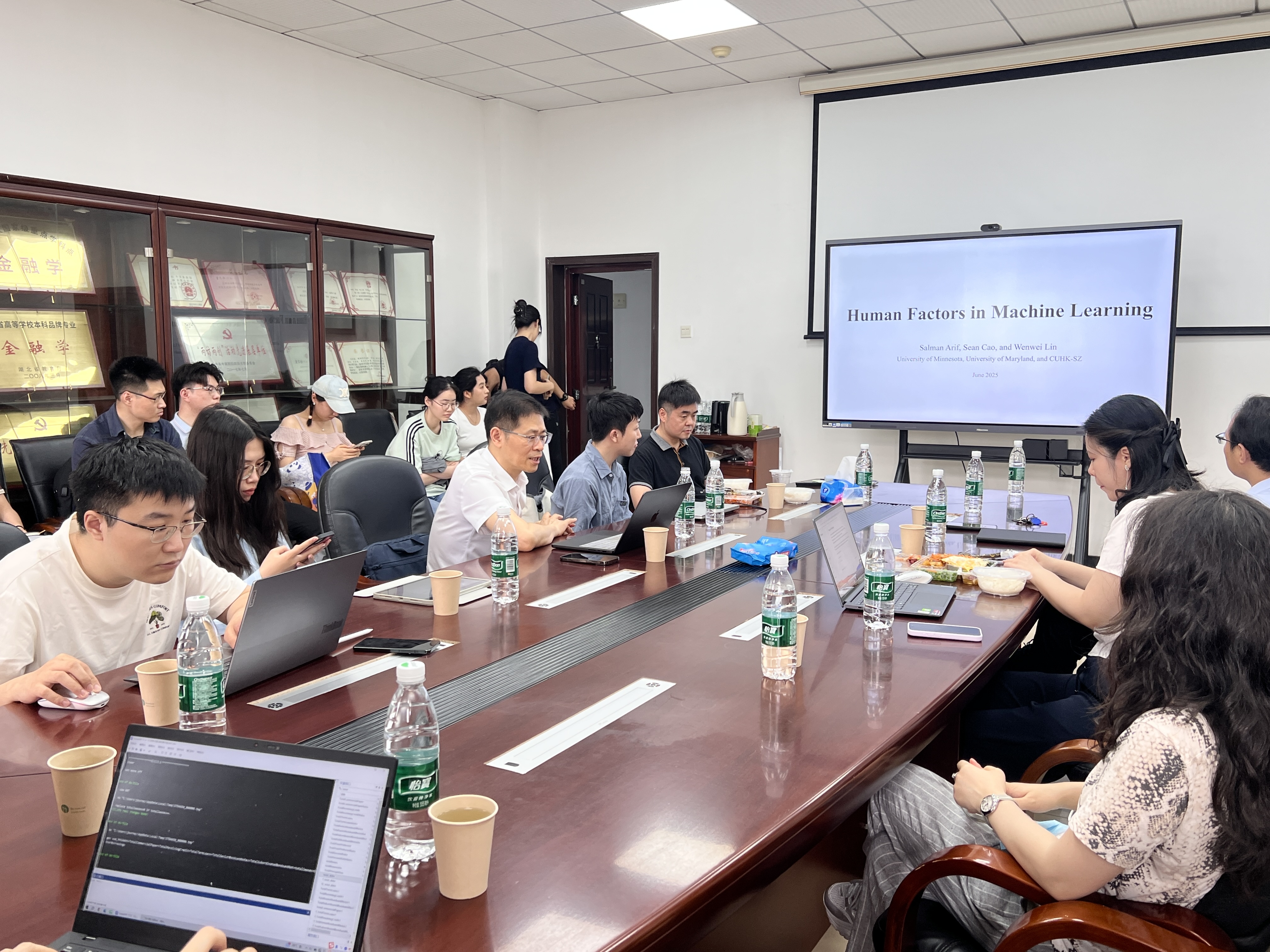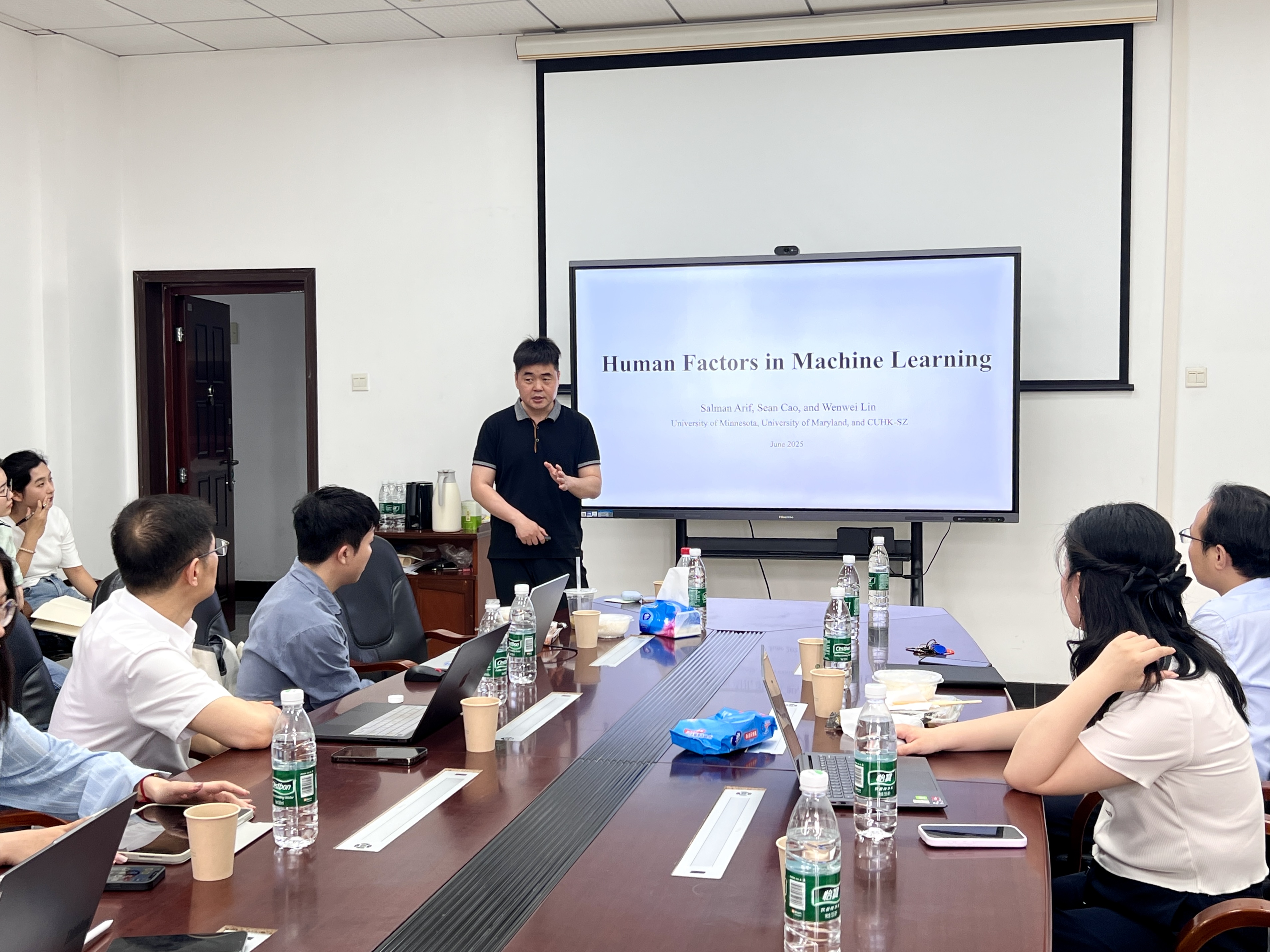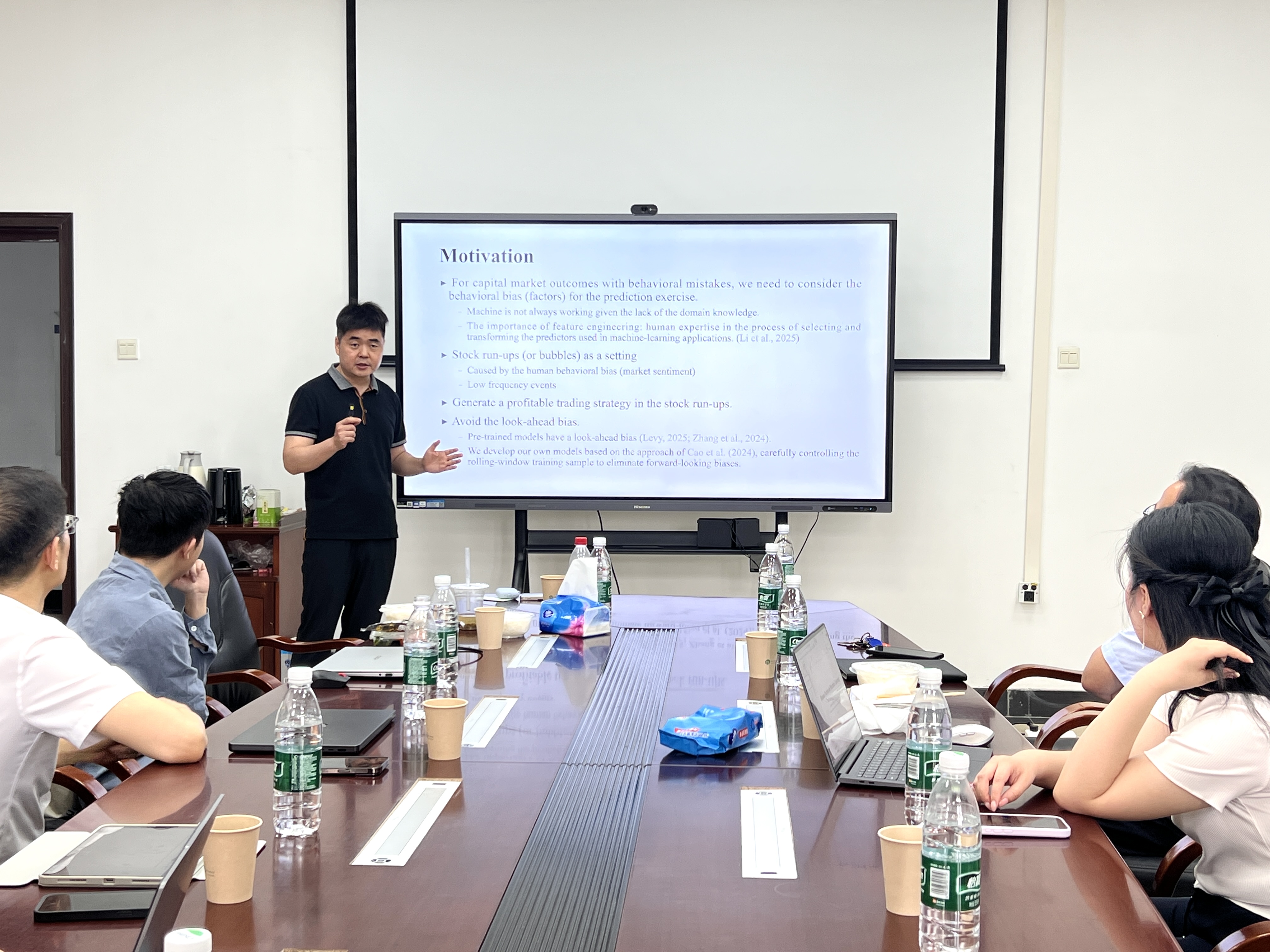On June 12, 2025, at 13:00 pm, the 46th Forum on Digital Technology and Economic Finance Frontiers was successfully held. The theme of the lecture was "LLM Forward-Looking Bias and Potential Solutions", and the guest speaker was Associate Professor Shun Cao (Tenured Associate Professor) from the University of Maryland. The lecture was chaired by Professor Minggui Yu, Dean of the Finance School and Co-Director of the Innovation and Talent Base for Digital Technology and Finance. More than 30 researchers from the base and faculty and students from the School of Finance also attended the lecture.

At the beginning of the lecture, Professor Minggui Yu briefly introduced relevant information of Associate Professor Shun Cao to the participants and expressed his sincere gratitude for his availability to give a lecture at our college despite his busy schedule.
During the lecture, Associate Professor Shun Cao elaborated on four dimensions: research motivation, experimental design, empirical results, and theoretical contributions. In the research motivation section, Associate Professor Cao pointed out that behavioral biases in capital markets can lead to forecasting errors, while machine learning models often perform poorly due to a lack of domain knowledge, highlighting the crucial role of human expertise in feature engineering. Taking stock market bubbles as a research scenario, he noted that bubbles are driven by behavioral biases such as market sentiment, and existing pre-trained models suffer from forward-looking bias. Thus, he developed a model to avoid such biases based on existing research methods.

In the experimental design section, Associate Professor Cao designed three groups of comparative schemes. Among them, Option 3 directly identifies behavioral biases in transactions through machine training, while the other two groups test the predictive performance of pure machine models and "human-machine combined" models, respectively. Empirical analysis showed that Option 3 performed best in predicting future crashes and returns, followed by human-machine combined information (Option 2), whereas the coefficient direction of pure analyst predictions (Option 1) was even opposite.

Finally, the participants engaged in active academic exchanges with Associate Professor Shun Cao, discussing the lecture topic together. Associate Professor Shun Cao provided detailed answers to the questions and concerns raised by the teachers and students. Professor Minggui Yu expressed gratitude for Associate Professor Shun Cao's presentation. With this, the current session of the forum came to a successful conclusion.
Speaker Introduction
Shun Cao is a tenured associate professor in the Department of Accounting at the Smith School of Business, University of Maryland. He previously held a joint tenured associate professorship in both the Department of Accounting and the Department of Finance at the Robinson College of Business, Georgia State University. Professor Cao's primary research areas include: corporate information disclosure and decision-making, and financial and accounting data analytics (primarily involving unstructured data processing and deep learning). His research has been published in top-tier accounting and finance journals such as the Journal of Financial Economics, Journal of Accounting Research, The Accounting Review, Contemporary Accounting Research, and IEEE Computer, among others. His work has been presented at research-intensive universities including Stanford University, Cornell University, the University of Virginia, the University of Minnesota, and Pennsylvania State University. He has also been invited to participate in seminars hosted by globally renowned companies such as Grant Thornton, Ant Financial, Baidu, and JD.com. Currently, Professor Cao serves as a guest editor for the big data special section of the top-tier journal Management Science and is a reviewer for leading journals including the Review of Financial Studies, Management Science, Contemporary Accounting Research, MIS Quarterly, and Accounting, Organizations and Society.
Frontier Forum for Digital Technology and Finance introduction
Recent years have witnessed a dramatic acceleration in a digital revolution in economic sectors and a rapid adoption of the new generation of information technologies, such as artificial intelligence, blockchain, cloud computing, big data, etc. These technologies effectively set off the digital economy. It has become a key driving force in creating global economic growth, improving the modernization level of governance capabilities, and promoting high-quality economic development in China. In particular, digital finance is the most important part of the digital economy. To explore the development direction of the cross-integration of digital technology and finance, the Innovation and Talent Base for Digital Technology and Finance is hosting the “Frontier Forum for Digital Technology and Finance”, in collaboration with the School of Finance, Wenlan School of Business, Economics School, School of Information and Safety Engineering, School of Statistics and Mathematics, School of Public Finance and Taxation of Zhongnan University of Economics and Law (ZUEL). This lecture series will invite the well-known scholars at home and abroad in digital technology, digital economy, digital finance, and other related fields as guest speakers, providing an open and cutting-edge academic exchange platform for interdisciplinary research on digital technology and finance.
